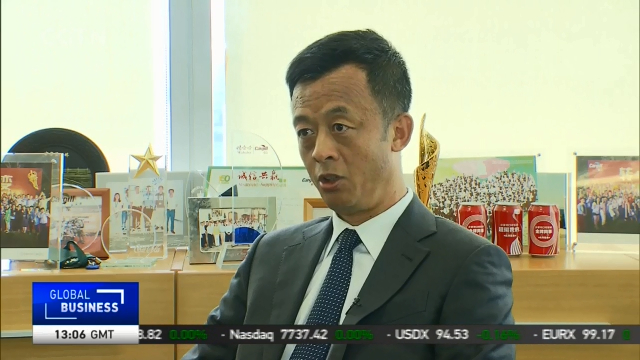
22:12, 30-Jul-2018
Negative List: Major changes open agricultural sector
Updated
21:21, 02-Aug-2018
02:57

A big part of the reforms affect the agricultural sector. Mi Jiayi has been speaking to foreign agri-companies to learn about the impact of the changes.
One month after the government released the trimmed negative list, things are getting real for foreign companies. In the agriculture sector, foreign companies are now allowed to trade three important grain products directly, corn, wheat and rice. Cargill is one of the world's biggest agricultural traders, and the company says this is very good news for them.
JERRY LIU, PRESIDENT CARGILL "To give you an idea, China produces 200 million tons of corn or more than that, but Cargill could only trade 600,000 tons, very small. And there is huge demand from feed mills for other customers, they would like Cargill to be part of their supply chain. So by opening up, our trading opportunities could be much higher. Before we have to trade through third-party local private traders, now we can do it as a foreign company, so it's a great help for our business."
Liu says, growth in the trading volume will bring growth to their profits as well. Being able to get into the trading business will also boost its other businesses. Since the new list has just been released, Cargill is still in early talks with inland farms and authorities to sort out storage, logistics and licensing issues. While this is all good news for foreign grain traders, some other foreign companies are hoping they can make it off the negative list the next time government shortens it. Foreign chemical fertilizer makers say they now have to negotiate with local sales agents before they export their products to China.
LE JIAN, GENERAL MANAGER SKYBRIDGE INDUSTRIAL COMPANY "There are four major import agents, all of them state-owned companies. For us to sell our products into China takes a long time, mainly with negotiations, and that generates a lot of costs. There are two main parts to the costs, one is the service charges to pay for agents, the other is that changing exchange rates during the negotiations can create extra costs."
Expectations are that the agricultural sector will continue to open up. Analysts say the new policy not only makes things easier for foreign companies, but also benefits domestic businesses.
CHEN BO, EXECUTIVE DIRECTOR INSTITUTE OF FTZ, HUST "I think it's a very positive signal. First of all it can attract a broader scope of FDI in China, namely in the agriculture sector, and those FDI can bring more technology, and bring new skill, and new product, such as it can enhance the productivity of our overall agricultural sector."
The new policy will also bring more competition to the agricultural market. The agricultural sector is one of 22 newly opened sectors which was taken off the negative list this year, in the first amendment since the lists were released in 2017.

SITEMAP
Copyright © 2018 CGTN. Beijing ICP prepared NO.16065310-3
Copyright © 2018 CGTN. Beijing ICP prepared NO.16065310-3